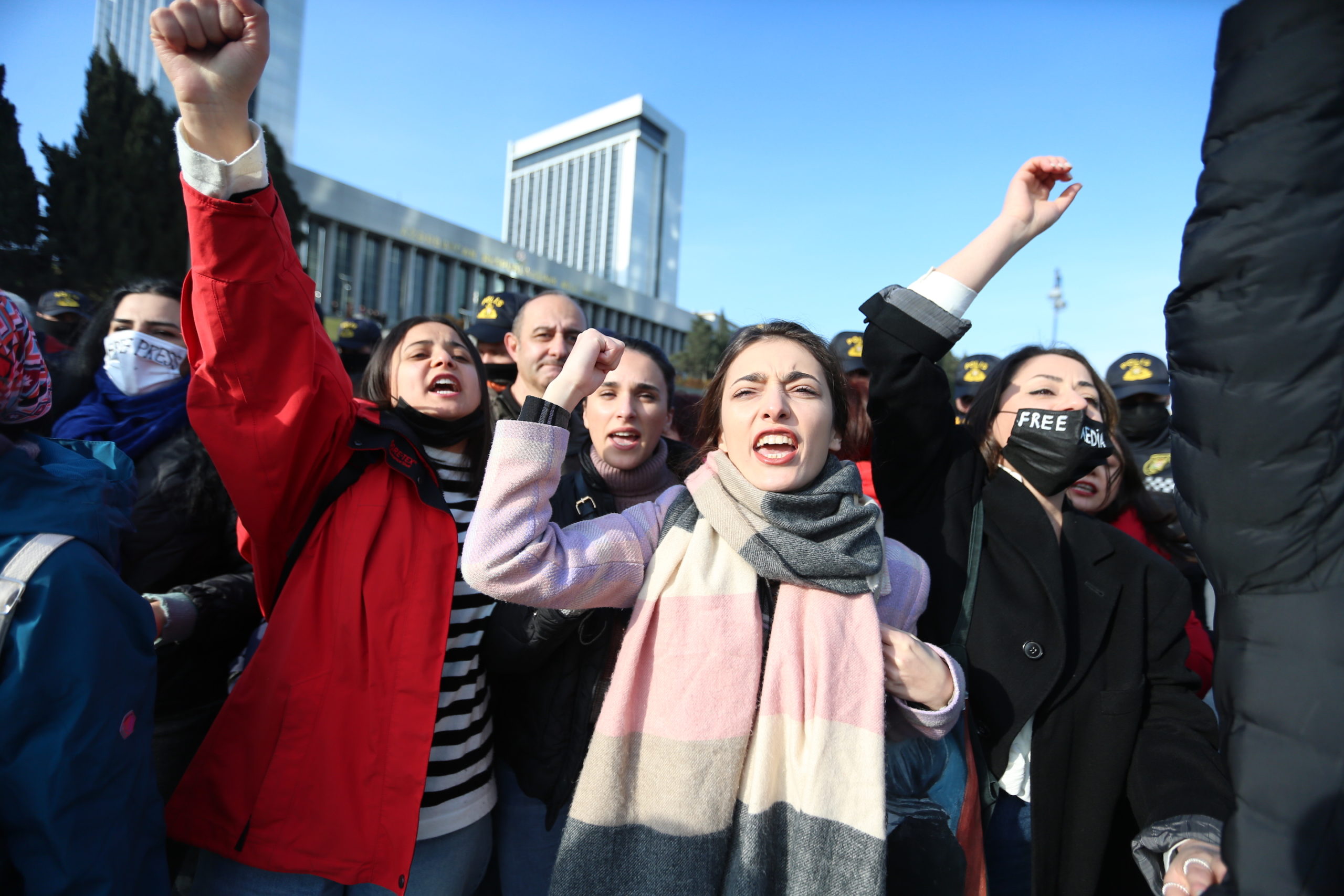Azerbaijani President Ilham Aliyev signed on Tuesday a divisive bill into law that will impose many sweeping restrictions on the country’s already heavily controlled media. With little or no formal opportunity for the public to discuss and comment on the draft, the Parliament had hastily approved it late December, passing it off to President Aliyev for signing before going into effect.
The bill was the subject of widespread local and international criticism and protests by local journalists, urging President Aliyev to reject the bill that would further and violate human rights and limit independent journalism. Human Rights Commissioner of the Council of Europe had called President Aliyev to use his authority to return the media law to the Parliament “to proceed to its substantial revision, after having submitted it to a broad and meaningful public consultation, in order to bring it in line with international and European standards on freedom of expression and media freedom”.
NHC has long documented how independent and critical media in Azerbaijan are frequently subject to censorship and forcible closure alongside with the systematic harassment, arbitrary punishment and arrest of journalists and social media activists. In the most recent report of the World Press Freedom Index put out by Reporters Without Borders, Azerbaijan ranked 167th out of 180. In the post-Soviet space, only Turkmenistan ranked lower.
Read more about Azerbaijan here.
Many provisions in the law allow the government to impose severe constraints on reporting and will be used to prevent media outlets from being critical of the government. Among the concerns include the creation of a single registry of journalists, who have to fit specific criteria, including lack of a criminal record, to be included in the registry. Given the country’s long track of imprisoning journalists on fake charges over the years, this specific precondition, will eliminate a significant number of independent reporters and legalize censorship. Under the bill, authorities will also not be required to get court backing to shut down media outlets deemed misleading.
Those regressive regulations, including arbitrarily defining who can be a journalist and a series of content restrictions on different grounds, registration requirement for journalists, and undefined and imprecise obligations are the hallmark of undemocratic government that want to repress media freedom and to block media it deems unfriendly. Azerbaijan’s international partners, which value free speech, should speak out how damaging these new restrictions will be in a country where an autocracy is being constructed by silencing media and critical voices.
